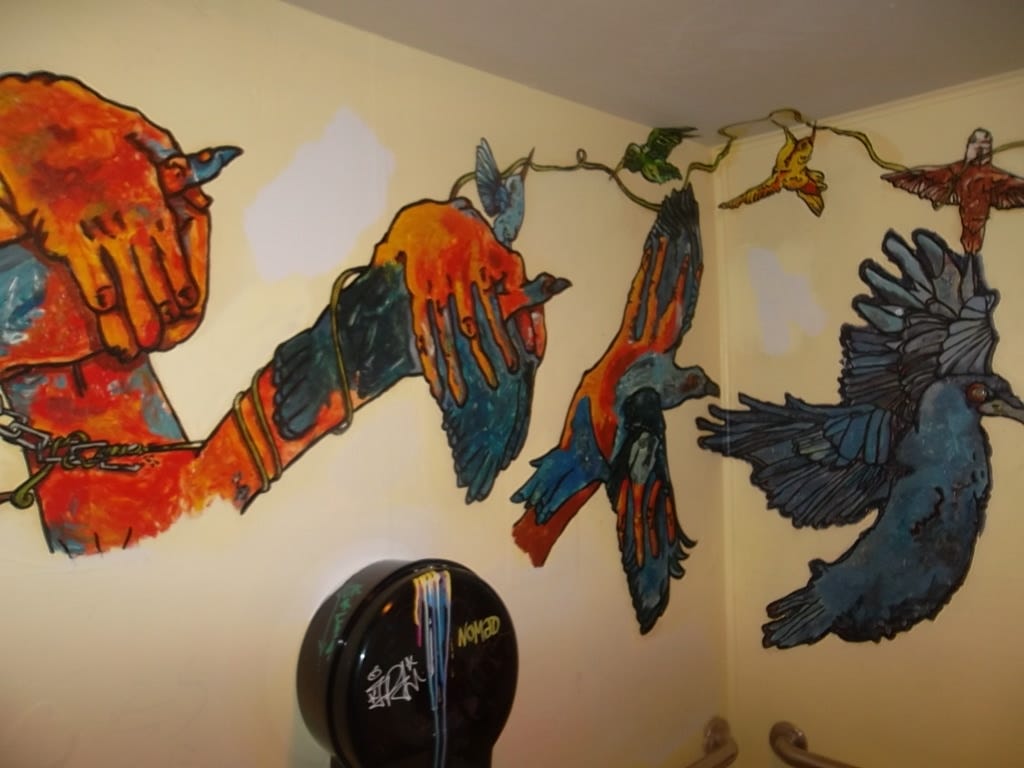Humanities in Revolt
Exploring the art of being human by taking the humanities out of the ivory tower and into the streets and homes of everyday life
Over the years much of my work has been confined to the classroom and the periodic public lecture. This newsletter is part of a larger project bringing what I believe are vital questions, ideas, and analysis from the humanities into dialogue with a wider public audience.
This post announces the new name and theme of this project and newsletter: Humanities in Revolt. The title is provocative but not without purpose.
At present our society faces climate catastrophe, increasing tensions between two nuclear armed powers, an ongoing lethal pandemic, political polarization, growing economic inequality whereby the bottom 50-percent of the U.S. population possess less than 2-percent of all wealth, and growing prospects of economic crash. To say that we live during uncertain times is a comedic understatement.
During such precarity the humanities are often diminished as irrelevant or impractical. In actuality, these are times when the humanities prove most important. The humanities, at their best and most daring, provide us with vital resources and insights to navigate and cope with the crises that characterize not only our current lives but also the human condition.
The humanities course I was required to take as an undergraduate student—”Intro to Ethics,” to be precise—spoke to me at a more fundamental level. Unasked questions were articulated; discouraged opinions were brought into open dialogue; uncomfortable contradictions were highlighted; and the beauty of creative, critical introspection was unshackled from conventional, common sensical expectations.
The best in the humanities, as I have learned as a professor, facilitate fuller appreciation, understanding, and capacity to examine the wider world of human culture. By engaging with philosophy, literature, music, history, religion, performing and visual arts we are prompted to actively attend to and understand the human condition, the nature of existence, and ultimate human values such as life, love, truth, and beauty. It is precisely during times of personal and social crises that these aims prove so existentially vital.
Humanities in Revolt is dedicated to taking the humanities out of the ivory tower and into the streets of everyday life. Humanities in Revolt applies the humanities to our personal, professional, and public lives in search of answers about what it means to be human in the 21st century, and how best to live lives of joy, fulfillment, and ethical integrity.

Humanities in Revolt takes as its starting point the ethical primacy of humanity and the living—the ends of life—over mechanisms and objects—the means of life. Put differently, Humanities in Revolt treats being—creative, spontaneous, organic, active, independent thought and experience—as the supreme value over having—passive, routinized, mechanized, conformist, appearance-driven thought and experience. Such a principle is as old as the humanities, and yet remains as boldly defiant of dominant societal practices as ever.
The natural question that follows is, what are these humanities in revolt against? First, the humanities are inherently in revolt against the suppression and subjugation of humanity. They are also in revolt against intransigence, cowardice, insensitivity, idolatry—honoring the objects of our creation over the agents responsible for their creation—and stasis.
By contrast, the humanities are in revolt for the activation and flourishing of our fullest and most virtuous human potential—our humanity. The humanities are also in revolt for creativity, humility, courage, love, and the dynamism inherent to humanity and life, itself. Thus this newsletter is committed to exploring precisely these themes as they apply to life in the 21st century. The hope is to generate insight, understanding, and fruitful dialogue along the way.
If you enjoyed this post please share it with others and like it by clicking the heart icon. Be sure to subscribe if you haven’t already.
Invite Dr. Nall to Speak
Dr. Nall delivers energetic live presentations and engaging workshops on the subjects featured in Humanities in Revolt. Those interested in booking a workshop or talk can get in touch through Facebook or by leaving a comment.






